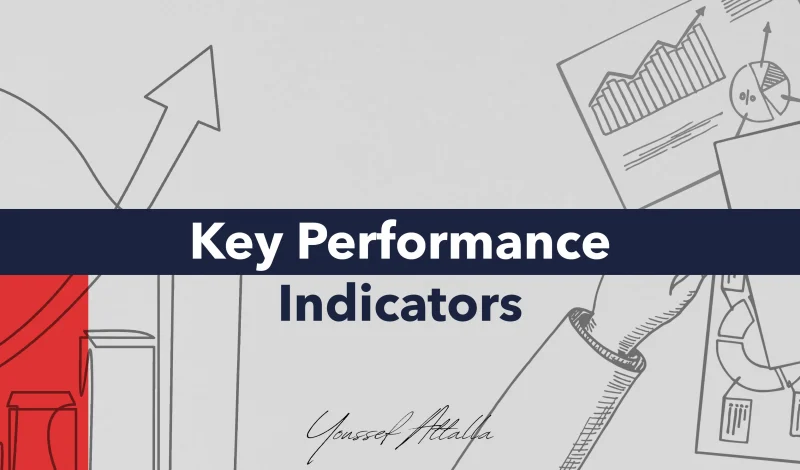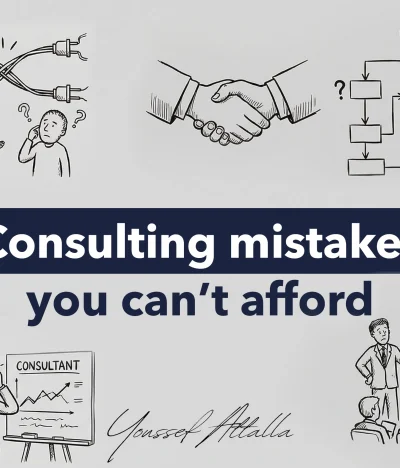In today’s competitive marketplace, success is not just about making sales, it’s about knowing exactly what drives growth and where improvements are needed. Businesses that rely only on intuition often find themselves struggling to sustain performance.
This is why Key Performance Indicators (KPIs) have become essential for leaders looking to make informed decisions.
KPIs act as a compass, guiding organizations toward their goals and ensuring every strategy aligns with measurable outcomes. In this guide, we’ll explore the importance of KPIs, the different types every business should track, and how business consulting services can help companies master the art of measuring success.
Why Key Performance Indicators Matter
Without clear data, success can be subjective. Some business owners may see revenue growth as a win, while others prioritize customer satisfaction.
Key Performance Indicators provide a unified language to measure performance objectively, making it easier for teams, executives, and stakeholders to stay aligned.
Tracking KPIs ensures that:
- Efforts are aligned with strategic goals.
- Leaders can spot risks before they escalate.
- Teams focus on the most impactful tasks.
- Growth is measurable and repeatable.
Simply put, KPIs take the guesswork out of measuring success.
Types of Key Performance Indicators
Not all KPIs serve the same purpose. A well-rounded business strategy involves tracking different categories that cover financial health, customer relationships, operations, and employee performance.
1. Financial KPIs
Financial KPIs give direct insight into profitability and sustainability. Common examples include:
- Revenue Growth Rate – Shows how fast your company is increasing income.
- Net Profit Margin – Measures profitability after expenses.
- Cash Flow – Determines liquidity and the ability to meet obligations.
By monitoring these, businesses can ensure they remain financially sound while scaling operations.
2. Customer KPIs
Customer-related KPIs focus on satisfaction and loyalty, both of which are crucial to long-term success.
- Customer Acquisition Cost (CAC) – How much it costs to acquire a new customer.
- Customer Lifetime Value (CLV) – The projected value of a customer over their relationship with the business.
- Net Promoter Score (NPS) – A measure of customer satisfaction and likelihood to recommend your brand.
These KPIs help businesses evaluate the quality of their customer experience and retention strategies.
3. Operational KPIs
Operational KPIs assess the efficiency of internal processes. Examples include:
- Order Fulfillment Time – How long it takes to deliver a product/service.
- Inventory Turnover – Efficiency in managing stock.
- Project Completion Rate – Effectiveness in meeting deadlines.
Strong operational KPIs lead to cost savings and better resource management.
4. Employee KPIs
A company’s workforce is its backbone. Employee KPIs measure productivity and engagement.
- Employee Turnover Rate – High turnover may signal deeper issues.
- Training Completion Rates – Tracks staff development efforts.
- Employee Productivity – Assesses output per individual/team.
These KPIs ensure employees contribute to organizational success while maintaining motivation.
How to Choose the Right Key Performance Indicators
Tracking every possible KPI is overwhelming and ineffective. Businesses should focus on a select few that directly tie into their strategic goals. Here are three tips for choosing wisely:
- Align with Business Objectives – Every KPI should connect to the larger vision.
- Make Them Measurable – Vague KPIs lead to inconsistent results.
- Review and Adjust Regularly – Business environments change, and so should KPIs.
This targeted approach prevents wasted effort and ensures clarity when measuring success.
The Role of Business Consulting Services in KPI Tracking
While KPIs are vital, many organizations struggle with implementing them effectively. This is where business consulting services make a difference.
Consultants bring expertise, tools, and fresh perspectives to design and monitor performance frameworks that truly matter.
A consultant can help by:
- Identifying the most impactful KPIs for your industry.
- Setting benchmarks based on competitors and market standards.
- Designing reporting systems that make insights accessible.
- Coaching teams on how to interpret KPI results.
Ultimately, business consulting services bridge the gap between raw data and strategic decisions, ensuring KPIs lead to actionable outcomes.
Common Mistakes to Avoid When Tracking KPIs
Many businesses fail to maximize KPIs because of avoidable mistakes. Here are the most common pitfalls:
- Tracking Too Many Metrics – More data doesn’t always mean better insights.
- Focusing Only on Financials – Customer and employee metrics matter just as much.
- Ignoring Trends – KPIs should be monitored over time, not in isolation.
- Lack of Accountability – KPIs need clear ownership within teams.
Avoiding these mistakes ensures that KPIs remain powerful tools for measuring success rather than just numbers on a dashboard.
Future of Key Performance Indicators in Business
As technology evolves, so does the way companies measure performance. Data analytics, AI-driven dashboards, and predictive modeling are transforming KPI tracking into a real-time process. Instead of looking backward, businesses can now forecast trends and take proactive steps.
This evolution highlights why adopting business consulting services is more critical than ever. Consultants can integrate advanced technologies, ensuring your KPIs remain relevant in a fast-changing business environment.
Conclusion: Turning KPIs into Business Success
Key Performance Indicators are more than just metrics—they are the backbone of strategy, decision-making, and sustainable growth. By focusing on financial, customer, operational, and employee KPIs, businesses can ensure every effort contributes to long-term objectives.
However, knowing which KPIs to track and how to act on them is often complex. That’s why partnering with the right expert makes all the difference.
If you’re serious about measuring success and want tailored solutions that work for your unique challenges, the perfect business consultant to guide you is Youssef Attalla.
Contact us today to start building a KPI framework that drives real results for your business.





